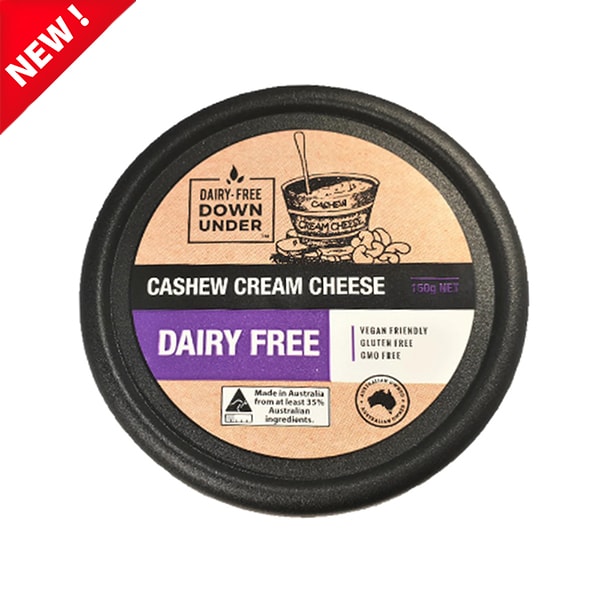


This batch of fermented cheese was made with sauerkraut brine, see below for the comparison to apple cider vinegar (you’ll see it has much less bubbles for etc same time fermenting, but it is slowly fermenting). I prefer and recommend unpasteurised sauerkraut/kimchi brine though.
#Cashew milk cheese cracked#
Brine from any homemade or unpasteurised fermented/cultured vegetables or kimchi, 3 Tbsp homemade kombucha starter, homemade or unpasteurised kefir ( this is a great brand here), unpasteurised apple cider vinegar or a few probiotics capsules cracked open.

You can use anything with a good amount of bacteria. What else can I use besides sauerkraut brine? Yes! I always use cashews, but macadamia or sunflower seeds would be a great choice.ģ. I recommend reading this here for a more in depth explanation. Having said that you can absolutely ferment with a cheesecloth covering the ferment, too, and if you do use an airtight jar ensure it either has a airlock or you burp it 2 x day. Shutting off air to the jar reduces invading pathogens like yeast or mould, which commonly spoil ferments. As long as we use a large enough jar that allows room for the ferment to grow.
#Cashew milk cheese how to#
I used to do this too! After studying how to perfect my ferments I realised that fermenting food is an anaerobic process- meaning it requires no oxygen. Why do you use an airtight jar? I’ve seen other people cover their ferment with a cloth? STORE in a glass jar, in the fridge for up to 3 months.ġ.TASTE your cheese to see if you’d like to leave it to ferment for longer.This will change depending on the time of the year- the ideal temperature is around 24C. POUR your mixture into a glass or ceramic jar with a lid- if you can, a jar with an airtight lid is best.BLEND your cashews with remaining salt and sauerkraut brine.SOAK your cashews in water with salt for 4 hours.Here are some other great source of bacteria rich foodsīACK TO OUR EASY FERMENTED CASHEW CHEESE. Eliminating as much refined sugar from your diet as possible and including probiotic rich foods help to keep a healthy balance. SOME OTHER WAYS TO LOOK AFTER YOUR GUT HEALTHĭiet and lifestyle play a massive role in effecting our gut micro biome (the ‘good and ‘bad’ bacteria).
#Cashew milk cheese skin#
When the balance is out and is tipped towards the ‘bad’ bacteria we can see a range of symptoms including bloating, constipation, diarrhoea, heart burn, unintentional weight changes, sleep issues, skin irritation, food intolerances, autoimmune conditions and even effects on our mental health.

So now we know that fermented foods enhance the ‘good bacteria’, but what do they do? Bacteria in our gut assists with digestion, absorption of nutrients and immune health. Our gut naturally has both ‘good’ and ‘bad’ bacteria, and achieving the right balance between the two can be a tricky task ( a healthy balance is known as equilibrium). This transformation enhances the natural beneficial bacteria (the ‘good’ bacteria, which are not probiotics, but are gut friendly) which helps a range of issues, specifically digestive health. Fermentation is the process in which organisms convert sugars or starch into alcohol or acid. Fermentation was originally used as a method of preservation long before refrigeration, but of course as we know today the benefits of fermentation go well beyond preservation. The science of gut health is a long and complicated one, different for each individual, and most definitely something that deserves a whole post in its self, but why fermented foods benefit our gut health is something I wanted to briefly touch on.įermented foods are not the cool new kid on the block, don’t get me wrong, they are very popular (and with good reason!), but fermentation goes back 1000’s of years (6000 B.C being the earliest record).


 0 kommentar(er)
0 kommentar(er)
